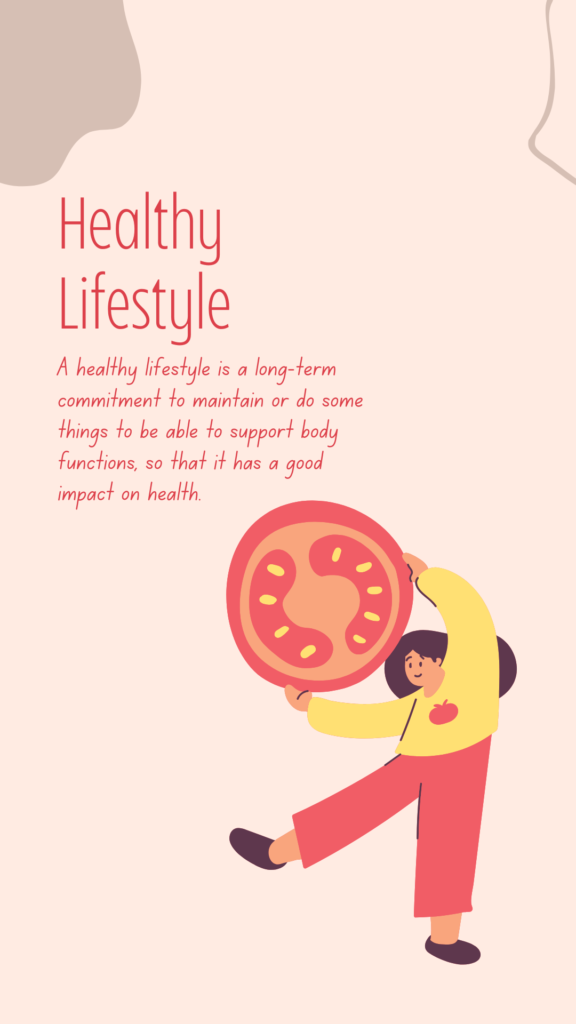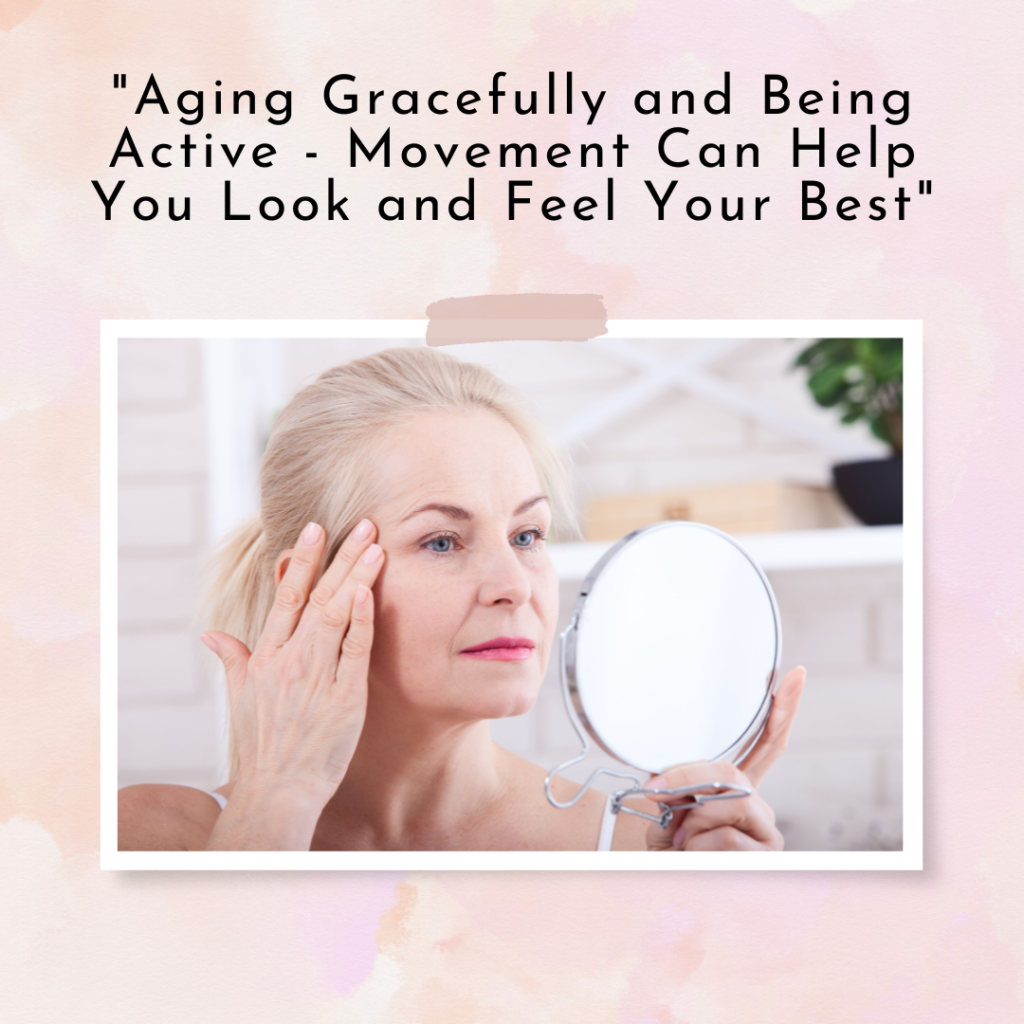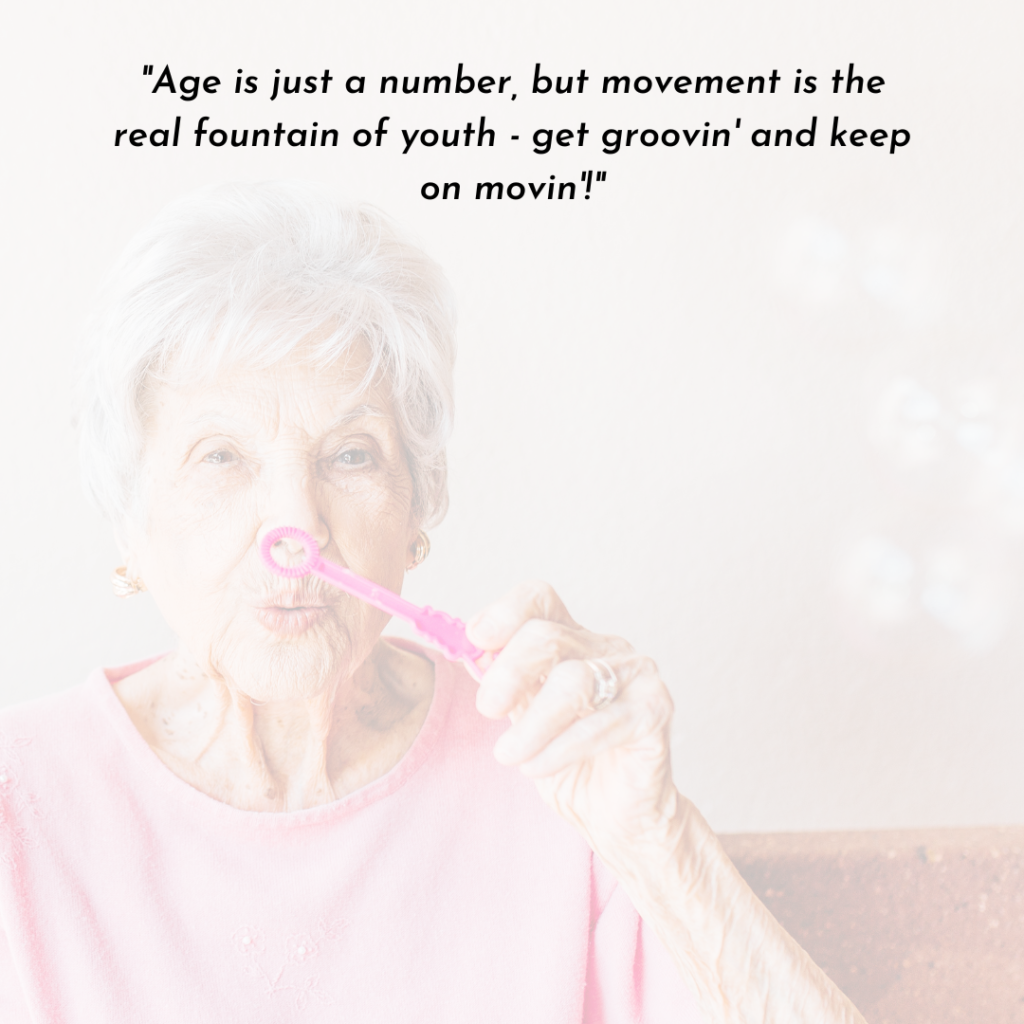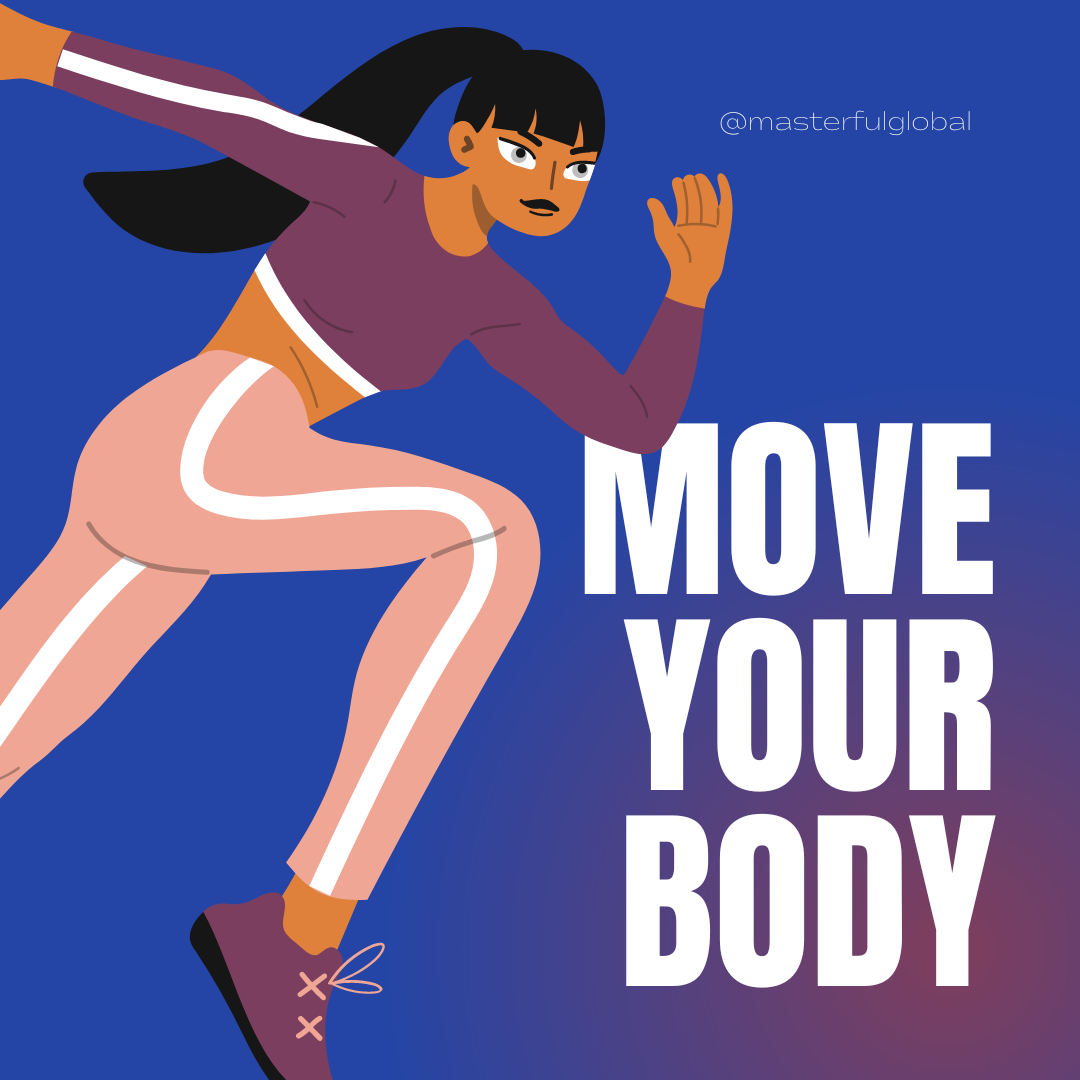Let’s get you started with some movement of thoughts!
Do you try to be physically active on a regular basis?
How often do you engage in cardiovascular exercise, such as walking, running, or cycling?
Are you currently working on improving your strength or flexibility through weight training, yoga, or other exercises?
Have you been told that “Movement is medicine”?
This phrase has been used to emphasize the importance of physical activity for overall health and well-being. It refers to the idea that exercise and movement can serve as powerful tools for improving various aspects of health, including physical, mental, and emotional health.
One of the great things about movement as medicine is that it can take many different forms. For some individuals, it may mean going for a brisk walk or jog, while for others, it may mean practicing yoga or participating in a group fitness class. The key is finding an activity that is enjoyable and sustainable.
It’s also important to note that movement doesn’t have to be formal exercise. Any type of movement can have health benefits, whether it’s taking the stairs instead of the elevator, gardening, participating in a weekend match, being sporty once a week or playing with your kids or grandkids.
What motivates you to stay physically active? Or shall I ask do you have the motivation to stay physically active?
It’s time you understand that with lack of motivation you also loose a lot of hormones, gain a lot of fat, attract negativity and then age reflects on your skin & face.
Here are some tips on how to age gracefully and be active at the same time:
Find an activity you love. Whether it’s walking, swimming, dancing, or practicing yoga, finding an activity you enjoy is key to sticking with it over the long term. Consider trying out a variety of activities to find what feels best for your body and your lifestyle.
Prioritize strength training. As we age, our muscles naturally begin to weaken, but strength training can help slow this process and keep us feeling strong and capable. Incorporate resistance exercises into your routine, such as using weights or resistance bands, and focus on all major muscle groups.
Make movement a part of your daily routine. You don’t have to spend hours in the gym to stay active – even small amounts of movement throughout the day can make a big difference. Consider taking a short walk after meals, stretching while watching TV, or doing a few quick exercises during work breaks.
Listen to your body. As we age, our bodies may not be able to handle the same level of intensity as when we were younger. It’s important to pay attention to how your body feels and adjust your activity level accordingly. If something doesn’t feel right, it’s better to take a break or modify the activity rather than pushing through pain or discomfort.
Stay hydrated. As we age, our bodies may become more susceptible to dehydration. Make sure to drink plenty of water before, during, and after physical activity to stay properly hydrated.
Get enough rest. Rest and recovery are just as important as physical activity when it comes to aging gracefully. Make sure to give your body time to rest and recover between workouts, and prioritize getting enough sleep each night.
By staying active and engaging in regular movement, you can help yourself age gracefully and feel your best. Remember, it’s never too late to start – even small changes can make a big difference over time. So get moving, and enjoy all the benefits that come with an active lifestyle.

Let’s analyze further:
Have you noticed any changes in your physical abilities or mobility as you’ve gotten older?
What barriers do you face when it comes to incorporating physical activity into your routine?
Have you ever worked with a personal trainer or fitness coach to help you reach your fitness goals?
What type of physical activity do you enjoy most, and why?
Have you set any specific fitness goals for yourself recently?
How has physical activity impacted your overall health and well-being?
Physical activity has been shown to have numerous health benefits. For example, regular exercise can help improve cardiovascular health, reduce the risk of chronic diseases such as diabetes and cancer, and improve bone density and muscle strength. Additionally, exercise has been shown to have positive effects on mental health, including reducing symptoms of depression and anxiety and improving cognitive function.
In fact, physical activity is often recommended as a first-line treatment for various health conditions. For example, exercise has been shown to be effective in managing chronic pain, improving mobility and function in individuals with arthritis, and reducing the risk of falls in older adults.

Aging is a natural part of life, but that doesn’t mean you have to let it slow you down. In fact, staying active and engaging in regular movement can help you look and feel your best as you age.
Improves balance and coordination: As we age, our balance and coordination can deteriorate, increasing the risk of falls and injury. Regular movement and exercise can help improve balance and coordination, making everyday activities safer and more enjoyable.
Increases flexibility: As we age, our joints can become stiff and less mobile. Movement can help improve flexibility, allowing us to move more freely and easily.
Strengthens muscles: Regular exercise and movement can help maintain muscle mass and strength, making everyday tasks easier and reducing the risk of injury.
Boosts energy and mood: Exercise and movement can help increase energy levels and improve mood, reducing stress and anxiety and promoting a sense of well-being.
Reduces the risk of chronic disease: Regular exercise and movement can help reduce the risk of chronic diseases such as heart disease, diabetes, and cancer, which become more common as we age.
Improves cardiovascular health: Movement and exercise can help improve cardiovascular health, reducing the risk of heart attack and stroke.
Helps maintain a healthy weight: As we age, our metabolism can slow down, making it easier to gain weight. Regular movement and exercise can help maintain a healthy weight and reduce the risk of obesity-related health issues.
Supports cognitive health: Regular exercise and movement have been shown to improve cognitive function and reduce the risk of cognitive decline as we age.
Improves sleep: Regular exercise and movement can help improve the quality of sleep, making it easier to fall asleep and stay asleep.
Promotes longevity: Research has shown that regular exercise and movement can help increase longevity and improve overall health and well-being as we age.
By incorporating movement into your daily routine, you can help yourself age gracefully and enjoy all the benefits that come with an active lifestyle. Whether it’s taking a walk, practicing yoga, or trying a new fitness class, there are many ways to stay active and healthy as you age.

